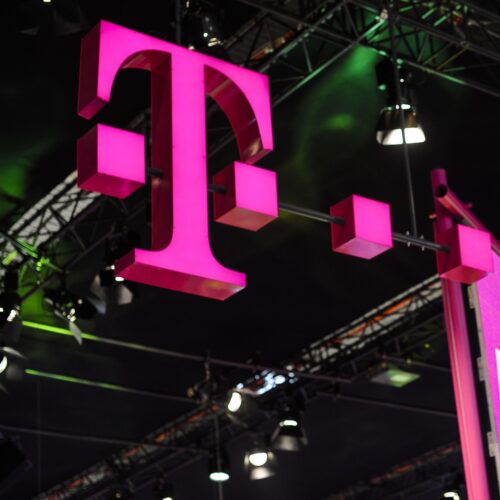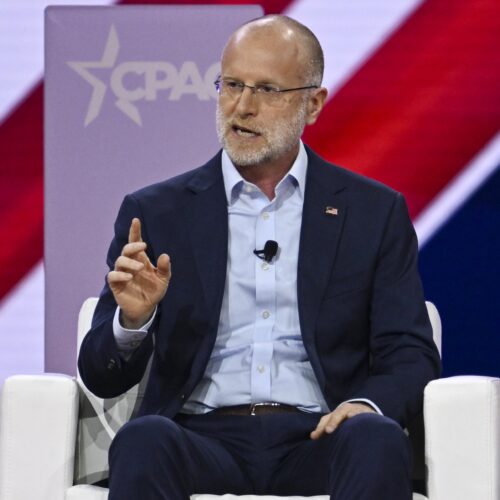Brendan Carr demanded that firms seeking mergers end DEI, and T-Mobile complied.
Credit: Getty Images | NurPhoto /
T-Mobile is ending DEI (diversity, equity, and inclusion) policies in an attempt to obtain the Trump administration’s approval for two mergers.
“As T-Mobile indicated earlier this year, we recognize that the legal and policy landscape surrounding DEI under federal law has changed and we remain fully committed to ensuring that T-Mobile does not have any policies or practices that enable invidious discrimination, whether in fulfillment of DEI or any other purpose,” T-Mobile General Counsel Mark Nelson wrote in a July 8 letter that was posted to the Federal Communications Commission’s filings website yesterday. “We have conducted a comprehensive review of T-Mobile’s policies, programs, and activities, and pursuant to this review, T-Mobile is ending its DEI-related policies as described below, not just in name, but in substance.”
It’s clear that T-Mobile was trying to influence the FCC’s review of its pending transactions because the carrier filed the letter in two dockets: one for its pending acquisition of US Cellular’s wireless operations and another for a joint venture to acquire fiber provider Metronet. The FCC observes an informal timeline of 180 days to review mergers; the T-Mobile/US Cellular deal is on day 253.
T-Mobile’s letter spurred the FCC to approve the Metronet deal in an order released yesterday. “We accept T-Mobile’s commitment to modify its practices as firm and definite, and expect that these changes to eliminate DEI practices will prevent discrimination in the post-transaction company, as consistent with the law and the public interest,” the July 9 FCC order said.
Carr yesterday called T-Mobile’s change “another good step forward for equal opportunity, nondiscrimination, and the public interest,” and wrote that “President Trump is restoring common sense and racking up wins.”
Update: Shortly after this article was published, the Department of Justice announced that it has closed its investigation into the T-Mobile/US Cellular deal and will not try to stop the merger. The FCC had not yet announced its own approval of the merger.
Firm reassigns employees, scrubs DEI from training
In March, T-Mobile obtained FCC approval for a joint venture to acquire fiber provider Lumos. That happened one day after T-Mobile sent Carr a letter saying it “is fully committed to identifying and rooting out any policies and practices that enable such discrimination, whether in fulfillment of DEI or any other purpose,” and was thus “conducting a comprehensive review of its DEI policies, programs, and activities.”
This week’s letter described the results of that internal review. “First, the handful of T-Mobile employees who focused on diversity and inclusion will be redirected within Human Resources to focus on employee culture and engagement,” Nelson wrote in the letter to Carr. “As a result, T-Mobile will no longer have any individual roles or teams focused on DEI. T-Mobile is also removing any references to DEI on its websites and will ensure that company websites and future communications do not have any references to DEI or ‘diversity, equity, and inclusion,’ and are consistent with T-Mobile’s commitment to promote nondiscrimination and equal employment opportunity.”
T-Mobile said it hires “the best person for the job” without favoring one demographic group over another and does not use “hiring quotas, goals, or percentages based on race, sex, sexual orientation, or other protected characteristics.” T-Mobile also said it removed all DEI references from employee training materials “and will ensure that all future training materials are focused on achieving the company’s core business objectives and anti-discrimination instruction, without reference to separate DEI objectives.”
“To the extent any training or mentorship programs within the company were previously limited to employees of a particular protected characteristic, we have opened those programs up to all employees. We also will not participate in recognition surveys that focus on employees’ protected characteristics,” the company’s letter also said.
FCC Democrat slams “cynical bid”
T-Mobile was slammed by FCC Commissioner Anna Gomez, the commission’s only Democrat. “In yet another cynical bid to win FCC regulatory approval, T-Mobile is making a mockery of its professed commitment to eliminating discrimination, promoting fairness, and amplifying underrepresented voices. History will not be kind to this cowardly corporate capitulation,” Gomez wrote.
Gomez wrote that DEI “policies are rooted in fairness and equal opportunity. They were created to fight discrimination—not promote it. Anyone claiming otherwise is distorting the truth to justify and reward discriminatory behavior.”
T-Mobile isn’t the only carrier to end DEI policies in an attempt to gain FCC merger approval. The Carr-led agency approved Verizon’s purchase of Frontier in May, one day after Verizon committed to end DEI policies in a filing with the commission.
Carr has not been shy about his intent to block mergers of companies that fail to end DEI policies. “Any businesses that are looking for FCC approval, I would encourage them to get busy ending any sort of their invidious forms of DEI discrimination,” he said in a March interview with Bloomberg. Carr said companies seeking merger approvals must stop “promoting invidious forms of DEI discrimination” in order for the FCC to determine “that approving the transaction is going to be in the public interest.”
Jon is a Senior IT Reporter for Ars Technica. He covers the telecom industry, Federal Communications Commission rulemakings, broadband consumer affairs, court cases, and government regulation of the tech industry.






